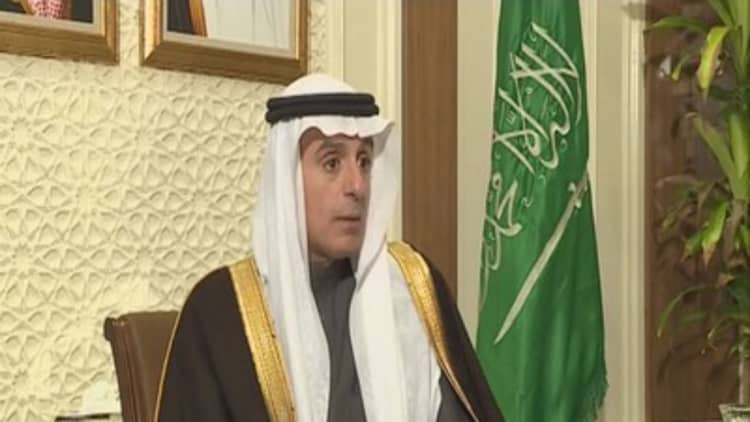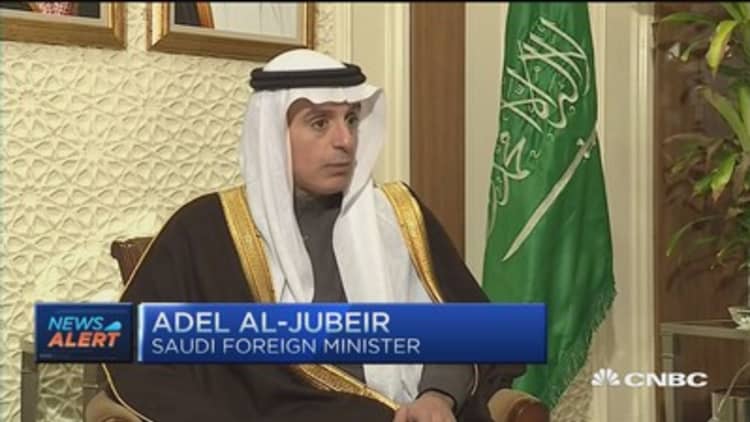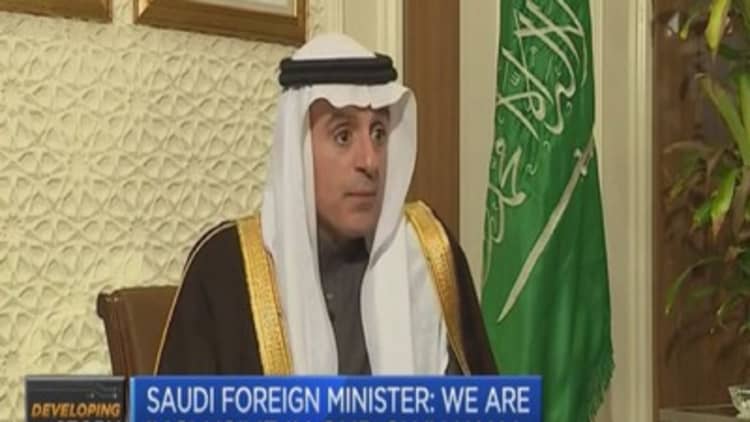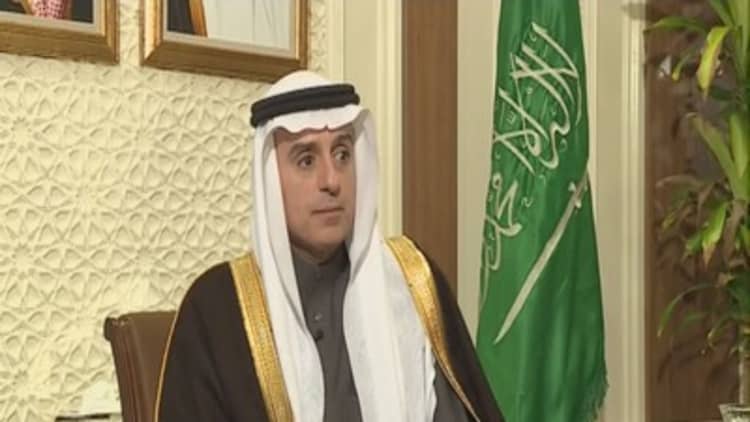



Middle Eastern powerhouse Saudi Arabia wants better ties, trade and investment with Russia, a country it sees as a "great power," the Saudi minister of foreign affairs told CNBC.
"With regards to our relationship with Russia, we believe that the extent of trade we have with Russia is not in line with the size of our respective economies. We are both members of the G20 but we have very little trade, very little investment and so we wanted to change that," Adel al-Jubeir told CNBC on Tuesday.
"Russia is a great power. Russia has 20 million Muslims living in it. Russia can play a positive role and we wanted to engage with Russia, we wanted to improve our relationship with Russia not at the expense of our relationship with any other country but for the sake of having better ties with Russia."
He noted that Saudi Arabia would take a pragmatic approach to investing in Russia, however. "If we find investments that are profitable, (then) yes (we will invest). If we find investments that are good for the Saudi people and the Saudi treasury yes, but we invest the way any serious investor does – you look at cost and you look at returns."
The country had already begun a process of "reaching out and encouraging trade, encouraging scientific exchanges, encouraging investment and we will continue to do that," al-Jubeir noted.
Russia the peacemaker
Al-Jubeir's comments come amid rising tensions between the country and its neighbor Iran, following Saudi Arabia's execution of a prominent Shiite cleric this weekend which prompted protests in Iran. Following an attack on Saudi Arabia's embassy in Tehran after the execution, diplomatic ties were severed with Iran and a war of words has ensued between the countries.
Russia has offered to play the role of mediator in a bid to repair relations between Saudi Arabia and Iran but Foreign Minister al-Jubeir said his country did not need help.
"When it comes to mediation, we don't need mediation. We know where Iran is, Iran knows where Saudi Arabia is, they know what our issues with them are and what they have to do is show us that they are serious. Show us a change in behavior, show us a change in attitude, show us a desire to want to have normal relations with us and we will do the same, we have no issue with this," he said.
The row has prompted fears for regional security and for Syrian peace talks, in which both countries are involved.
On Tuesday, Saudi Arabia signaled its soured relations with Iran would not affect talks on Syria, another round of which is scheduled in Geneva this month, Reuters reported. In those peace talks too, Russia has offered to play a role, particularly given its closeness to Syrian President Bashar al-Assad and potential ability to influence his position in the peace process.
Al-Jubeir appeared to welcome Russia's role in the talks, saying Saudi Arabia had made it "very clear" to Russia that it could play a "very important role by putting pressure on Bashar Assad to step down and allow for a transition in Syria."
Don't mention oil
Despite the seemingly warmer relations between Saudi Arabia and Russia, oil remains a thorn in the side of the relationship. Both countries are major global oil exporters and both have had to contend with a steep drop in the price of oil, from around $114 a barrel in June 2014, to around $36 a barrel today.
What divides them, however, is their reaction to the decline in price caused largely by demand failing to keep up with a continuing glut in supply. Saudi Arabia and OPEC, of which it is the de facto leader, have refused to cut oil production in a bid to support prices, preferring to drive out competitors elsewhere (shale oil producers in the U.S. and Canada, for example).
Saudi Arabia and recession-hit Russia have reportedly had talks on the oil price but there has been no change in OPEC, and effectively, Saudi Arabia's strategy. Al-Jubeir denied that his country could control the oil price, arguing that it is "controlled by the markets and by supply and demand."
"It is subject to cyclical swings depending on how much supply, how much demand and this affects the price of oil. I think the discussions about being able to manipulate the price or being able to manipulate the markets are exaggerated. At the end of the day its fundamental economics of supply and demand."
- By CNBC's Holly Ellyatt, follow her on Twitter @HollyEllyatt. Follow CNBC International on Twitter and Facebook.






